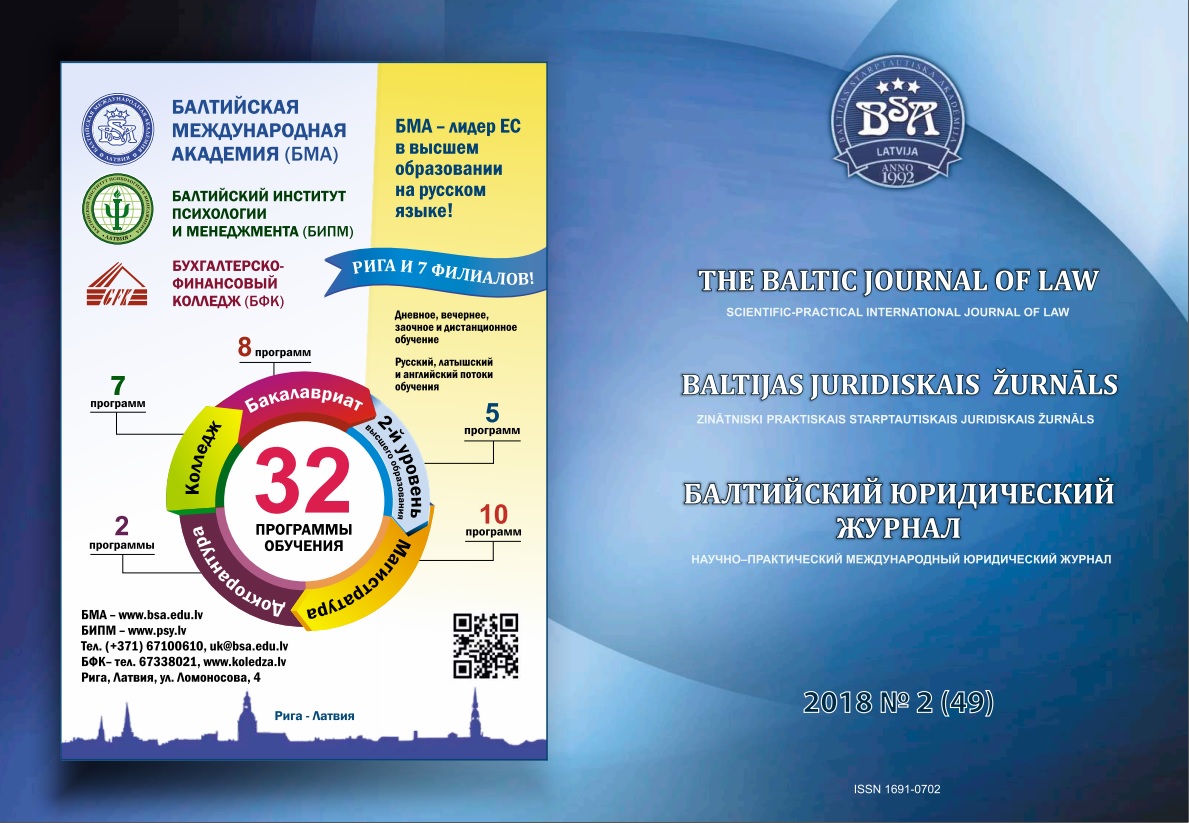Demokrātisko principu tiesiskums valsts un pašvaldības pārvaldīšanā un problemātikā
Legality of Democratic Principles in the Management and Problematics of State and Local Government
Author(s): Irina DolgovaSubject(s): Law, Constitution, Jurisprudence
Published by: Baltijas Starptautiskā akadēmija
Keywords: Municipality;deputy;deputy rights;democratic state;local government binding regulations
Summary/Abstract: The main regulatory enactments that regulate the activities of a local government are the “Law on the Status of the Deputy of the Republic City Council and Municipality Council”, the law “On Local Governments”, the “State Administration Structure Law”, and the binding regulations of each local government. The right of a deputy to ask questions is stated in the “Law on the Status of the Deputy of the Republic City Council and Municipality Council”, section 5 of the second part, point 6 - a deputy has the right to participate in debates, to ask questions, to provide references. At the same time, State Administration Structure Law, section 70, part 1 states that those members of the collegial authority who have voted shall be liable for the efficiency and the lawfulness of an administrative decision of a collegial authority, unless any such member has especially requested to record their objections in the minutes of the taking of the decision. It is concluded from the abovementioned legal framework that in a democratic state, the deputy has the right to ask as many questions as long as deputy has assumed that the relevant decision of the city council will be taken in accordance with the requirements of the regulatory enactments. It follows from the foregoing that the binding rules of municipalities cannot limit the number of questions to a deputy.
Journal: BALTIC JOURNAL OF LAW/ BALTIJAS JURIDISKAIS ŽURNĀLS /БАЛТИЙСКИЙ ЮРИДИЧЕСКИЙ ЖУРНАЛ
- Issue Year: 50/2018
- Issue No: 3
- Page Range: 48-53
- Page Count: 6
- Language: Latvian

